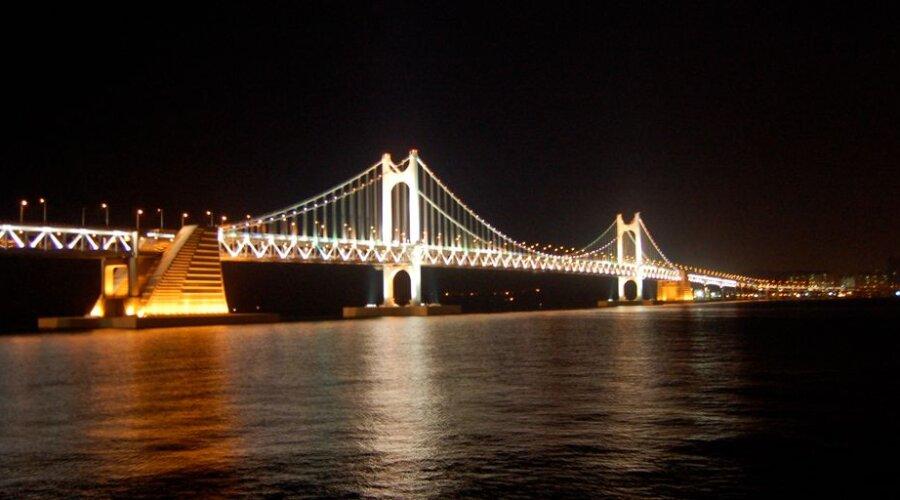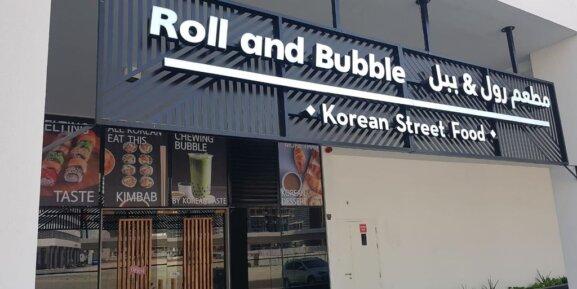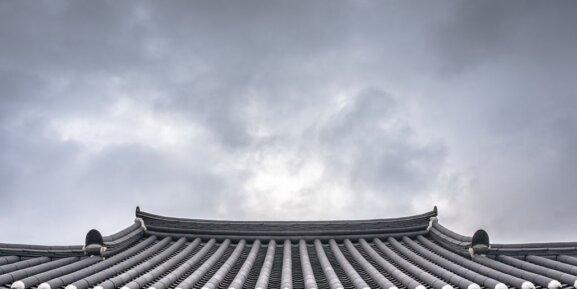“Cultural Capitals: South Korea’s Cities Beyond Seoul”
South Korea is a nation that boasts a rich tapestry of culture and history, often overshadowed by its bustling capital, Seoul. However, beyond the neon lights and skyscrapers of Seoul lie other cities that offer unique experiences and cultural treasures. From the coastal charm of Busan to the tech innovation in Daejeon, and the culinary delights of Jeonju, South Korea’s cities are brimming with stories waiting to be discovered. This article delves into these vibrant cities, exploring what makes each one a cultural capital in its own right.
Key Takeaways
- Busan is renowned for its beautiful beaches, film festivals, and historic temples.
- Daejeon is recognized as South Korea’s Silicon Valley, with its tech hubs, science museums, and natural parks.
- Gwangju stands out as a city of art and history, featuring numerous galleries, historic sites, and cultural festivals.
- Incheon serves as a global gateway with its international airport, diverse cultural neighborhoods, and modern architecture.
- Jeonju is celebrated for its traditional Korean cuisine, charming Hanok Village, and vibrant food festivals.
Discovering Busan’s Coastal Charm

Busan, South Korea’s second largest city, is a coastal gem known for its delectable seafood and sandy beaches. This vibrant city offers a unique blend of urban energy and natural beauty, making it a must-visit destination.
Beaches and Resorts
Busan’s coastal location, with beautiful beaches, has led luxury hotels and resorts, such as the Grand Josun, Ananti, and Banyan Tree, to expand in the city. Haeundae Beach is a popular spot, featuring an elaborate boardwalk saturated with street food and nightlife. For those looking for a more serene experience, Gwangalli Beach offers stunning views of the Gwangan Bridge.
Busan International Film Festival
The Busan International Film Festival (BIFF) is one of the most significant film festivals in Asia. Held annually in October, it attracts filmmakers and cinema enthusiasts from around the world. The festival showcases a diverse range of films, from mainstream to independent cinema, making it a cultural highlight of the city.
Historic Temples
Busan is also home to several historic temples that offer a glimpse into South Korea’s rich cultural heritage. Beomeosa Temple, located on the slopes of Geumjeongsan Mountain, is one of the country’s most important temples. Another notable temple is Haedong Yonggungsa, which is uniquely situated along the coastline, providing breathtaking ocean views.
Tucked along the coastline, Busan is the second largest city in South Korea. It is home to picturesque mountains, glimmering beaches, and the Paradise Busan, which is located right along the lively Haeundae Beach.
For those interested in a more immersive experience, the work exchange program at Kimchee Guesthouse Busan offers volunteer positions with free accommodation. Located in Busan downtown, volunteers work 3 hours a day, 5 days a week, with opportunities to explore the city.
Daejeon: South Korea’s Silicon Valley

Tech Innovation Hub
Daejeon, also known as Taejon, is a vibrant city in South Korea, famous for its technological advancements. The city is home to numerous research institutes and tech companies, making it a hotspot for innovation. The creative energy that pulses here drives advancements in various fields, including IT and biotechnology.
Science Museums
Daejeon boasts several science museums that cater to both children and adults. These museums offer interactive exhibits and hands-on experiences, making learning fun and engaging. The National Science Museum is a must-visit, showcasing South Korea’s achievements in science and technology.
Parks and Nature
Despite its high-tech reputation, Daejeon is also known for its beautiful natural landscapes. The city offers numerous parks and green spaces where residents and visitors can relax and enjoy nature. From lush gardens to scenic hiking trails, there’s something for everyone.
Daejeon perfectly balances technological innovation with natural beauty, making it a unique destination in South Korea.
Gwangju: A City of Art and History

Art Galleries and Museums
Gwangju is a haven for art lovers. The city is home to numerous galleries and museums, including the renowned Gwangju Biennale, which was founded in 1995 in memory of the spirits of the civil uprising of the 1980s. The Ceramics Museum in Gwangju is another must-visit, offering a deep dive into the region’s rich artistic heritage.
Historic Sites
Gwangju is not just about art; it’s also steeped in history. The 5/18 Memorial Park is a poignant reminder of the 1980’s 5/18 Democratic Uprising. This small yet compelling park is a must-visit for anyone interested in South Korea’s modern history.
Cultural Festivals
The city comes alive with various cultural festivals throughout the year. From traditional music and dance to contemporary art and food festivals, there’s always something happening in Gwangju. The Gwangju Biennale is a highlight, attracting artists and visitors from around the world.
Incheon: Gateway to the World

Incheon International Airport
Incheon International Airport is not just a transit hub; it’s an experience in itself. Incheon Airport is really something with its spa, golf course, skating rink, and even a museum! Whether you’re waiting for a flight or just exploring, there’s plenty to keep you entertained.
Chinatown and Cultural Diversity
Incheon boasts a vibrant Chinatown, reflecting the city’s rich cultural diversity. Wander through the streets and you’ll find a mix of traditional and modern influences, from authentic Chinese restaurants to contemporary art installations. It’s a melting pot of cultures that offers a unique glimpse into the city’s soul.
Modern Architecture
The city is also home to some stunning modern architecture. Songdo International Business District is a prime example, designed to be a smart city with cutting-edge technology and sustainable practices. It’s a testament to Incheon’s forward-thinking urban planning and development.
Incheon is more than just a gateway; it’s a destination in its own right, offering a blend of tradition and modernity that makes it a must-visit city in South Korea.
Sejong: The Administrative Heart

Government Complex
Sejong is a special self-governing city designed to decentralize the administrative functions of Seoul. The Government Complex in Sejong houses numerous ministries and agencies, making it the new hub of South Korea’s government operations. This move aims to reduce congestion in Seoul and promote balanced regional development.
Urban Planning
Sejong is a city built with meticulous urban planning. The city is divided into several zones, each with a specific function, such as residential, commercial, and governmental. This planned approach ensures a high quality of life for its residents, with easy access to amenities and services.
Green Spaces and Parks
One of the highlights of Sejong is its abundance of green spaces and parks. The city planners have prioritized environmental sustainability, creating numerous parks and recreational areas for residents to enjoy. These green spaces not only enhance the beauty of the city but also contribute to the well-being of its inhabitants.
Sejong represents a modern approach to urban development, blending administrative efficiency with a high quality of life for its residents.
Daegu: Tradition Meets Modernity

Nestled in the scenic Gyeongsangbuk-do province, Daegu offers a unique blend of traditional charm and contemporary excitement. This city is a fascinating mix of old and new, where you can explore historic temples and bustling markets alongside modern shopping districts and innovative architecture.
Traditional Markets
Daegu’s traditional markets are a must-visit. Seomun Market, one of the largest and oldest markets in South Korea, is a vibrant hub where you can find everything from fresh produce to handmade crafts. The market’s lively atmosphere and diverse offerings make it a perfect place to experience local culture.
Fashion and Textile Industry
Daegu is often referred to as the fashion capital of South Korea. The city is home to numerous textile companies and hosts the annual Daegu Fashion Fair, attracting designers and buyers from around the world. The fashion and textile industry is a significant part of Daegu’s economy, contributing to its reputation as a trendsetting city.
Modern Landmarks
Daegu’s skyline is dotted with modern landmarks that showcase its contemporary side. The Daegu Tower, also known as E-World 83 Tower, offers stunning views of the city. Additionally, the Daegu Opera House and the Daegu Art Museum are key cultural venues that highlight the city’s commitment to the arts.
Daegu seamlessly blends its rich history with modern advancements, making it a unique destination for travelers seeking both cultural depth and contemporary flair.
Jeonju: The Culinary Capital

Jeonju is a city that truly lives up to its reputation as the culinary capital of South Korea. From traditional Korean dishes to modern culinary innovations, this city has it all.
Conclusion
South Korea’s cultural landscape is as diverse and dynamic as its cities. While Seoul often takes the spotlight, cities like Busan, Sejong, and others are carving out their own unique identities and contributing to the nation’s rich tapestry. From bustling ports to planned urban centers, these cities offer a glimpse into the future of South Korea, blending tradition with modernity. So next time you think of South Korea, remember there’s a lot more to explore beyond the neon lights of Seoul.
Frequently Asked Questions
What is the significance of Sejong city in South Korea?
Sejong city is a planned city that embodies the debate on capital transfer in South Korea. It is central to contemporary regional planning policies and represents a potential future administrative capital.
Why is Busan considered a cultural and economic gateway in South Korea?
Busan is home to one of the world’s busiest ports, making it a key cultural and economic gateway to Asia and beyond. It is also known for its beaches, resorts, and the Busan International Film Festival.
What makes Jeonju the culinary capital of South Korea?
Jeonju is renowned for its traditional Korean cuisine, including dishes like bibimbap. The city also hosts food festivals and features the Hanok Village, which offers a glimpse into traditional Korean life and architecture.
How does Daejeon contribute to South Korea’s tech industry?
Daejeon is known as South Korea’s Silicon Valley, serving as a tech innovation hub with numerous research institutes and science museums. It plays a crucial role in the country’s technological advancements.
What historical and cultural significance does Gwangju hold?
Gwangju is a city rich in art and history, known for its art galleries, museums, and historic sites. It also hosts various cultural festivals that celebrate its vibrant heritage.
What are some key features of Incheon as a modern city?
Incheon is known for Incheon International Airport, one of the busiest airports in the world. The city also boasts a diverse cultural scene with its Chinatown and modern architecture, making it a gateway to the world.



